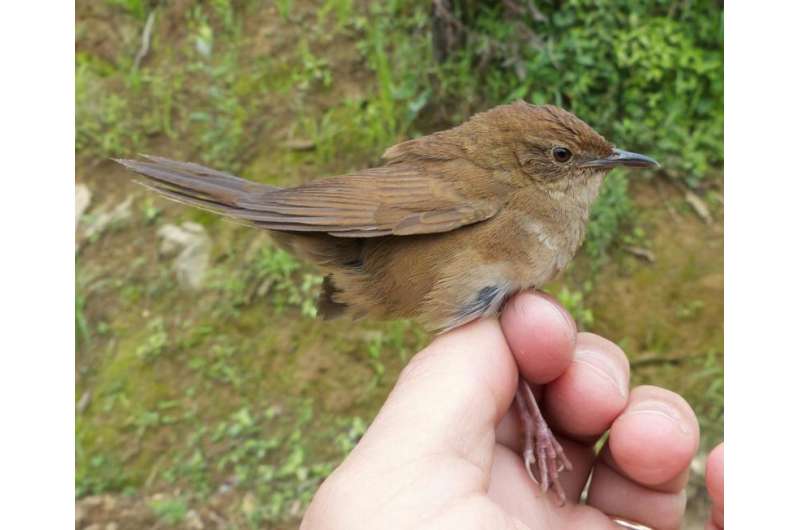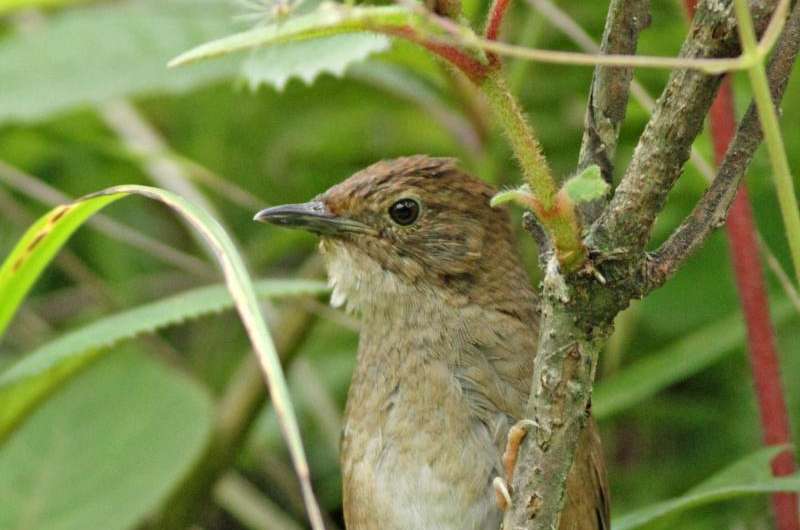Elusive new bird International discovered in China

A Michigan State University professor was part of an international team of scientists that has discovered a new bird in China.
The new bird, the Sichuan bush warbler, resides in five mountainous provinces in central China. The discovery, shared in the current issue of Avian Research, notes that the bird shunned the limelight by hiding in grassy, scrubby vegetation over the years. However, its distinctive song eventually gave it away, said Pamela Rasmussen, MSU integrative biologist, assistant curator at the MSU Museum and co-author on the paper.
"The Sichuan bush warbler is exceedingly secretive and difficult to spot as its preferred habitat is dense brush and tea plantations," said Rasmussen, who has helped document and scientifically describe 10 new species of birds. "However, it distinguishes itself thanks to its distinctive song that consists of a low-pitched drawn-out buzz, followed by a shorter click, repeated in series."
While the bird may be elusive, it is common in central China and doesn't appear to be under any imminent threat, she added.
The bird's signature song can be found on MSU's Avian Vocalizations Center website. Thousands of bird songs are housed in this extensive website, including the new bird's closest cousin: the Russet bush warbler.
Both warblers can be found on some of the same mountains. However, where they reside together, the Sichuan bush warbler prefers to live at lower elevations. When not competing with its cousin, the Sichuan bush warbler breeds up to 7500 feet.

Along with sharing the same mountain habitat, the two warblers also are close neighbors in terms of genetics. Analyses of mitochondrial DNA show that the warbler species are closely related and are estimated to have had a common ancestor around 850,000 years ago.
The bird's Latin name, Locustella chengi, honors the late Cheng Tso-hsin, China's greatest ornithologist. Cheng, founder of the Peking Natural History Museum and author of 140 scientific papers and 30 books, was known internationally for his dedication to ornithology.
"We wanted to honor Professor Cheng Tso-hsin for his unparalleled contributions to Chinese ornithology," Rasmussen said. "Many species are named for European explorers and monarchs but few bear the names of Asian scientists."
Provided by Michigan State University













.jpg)





